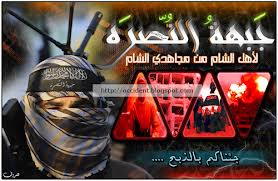 *By Mohammed Alaa Ghanem
*By Mohammed Alaa Ghanem
The U.S. commitment to aiding the Syrian opposition against the brutal regime of Bashar al-Assad has been one of many words and few deeds. Repeated pledges of support absent material assistance have allowed fringe elements to establish themselves in northern Syria. If this trend persists, Secretary of State Hillary Clinton’s warning of “efforts by extremists to hijack the Syrian revolution” will soon become reality.
During a recent three-week trip to the Middle East, I observed both encouraging and disturbing developments. I went into Aleppo, Syria’s largest city and industrial capital, to see how Syrians were coping with chaos. About 75 percent of Aleppo is under opposition control.
I expected to talk to average people overwhelmed with trying to restore order. Instead, I encountered a sophisticated civilian governance structure. The Aleppo Transitional Revolutionary Council, run by a 23-member board of university-educated professionals, has emerged in the liberated areas. To restore critical services to the heavily damaged city, the council has formed 12 committees covering law enforcement, education, bakeries, relief efforts and more. The medical council alone was running eight hospitals. (Shelling by the Assad regime leveled one of those hospitals last month.)
The people I met with impressed me with their professionalism and they way they emphasized the “interim” before their titles. All said they plan to abide by election results once peace is restored to the city.
A few months ago, the majority of the Free Syrian Army (FSA) elements in Aleppo coalesced into the Revolutionary Military Council under the disciplined leadership of Col. Abduljabar Ekeidi. They have shockingly few resources: Because of protocols governing how supplies can enter Syria, the council is able to scrape together enough ammunition for a day’s fighting about every two weeks. Forces loosely affiliated with the FSA make up about 80 percent of the armed groups in the city; the others are undisciplined or hard-line organizations or criminal groups taking advantage of the violence.
Civilian efforts to provide governance and medical care and bring lawless and extremist elements to heel have been hamstrung by lack of resources. Brig. Gen. Adib al-Shallaf, a defector from Syrian security forces, has plans to reestablish a civilian police force for Aleppo. But some weeks he is not able to regularly feed his recruits, much less buy them uniforms. He told me he was not sure how long his effort could survive.
Halab al-Shabaa Brigade, one of the larger FSA units under the military council in Aleppo, is considering disbanding. The unit commander, a moderate, told me he knew that the extremist militant group Jabhat al-Nusra had approached some of his men. Jabhat al-Nusra is well-financed: Many of its cells have more food and weapons than recruits, and they are approaching Syrians to expand. Their obvious advantage is that they can provide what more moderate groups and civilian councils cannot: salaries and weapons.
I was shocked when a liberal commander of a brigade from al-Hasakah, a province in northeastern Syria, told me that he was considering joining Jabhat al-Nusra. His view of why he had “no option” was strategic: “I’m struggling with funding, and if the deal comes through me, I’ll maintain influence over the 20-year-olds fighting in my brigade, most of whom are not terribly educated. If the frustration grows, they will leave me, and they might end up with Jabhat al-Nusra, at which point they might embrace their ideology.”
Since I visited Aleppo, the United States has designated Jabhat al-Nusra a terrorist organization and an affiliate of al-Qaeda in Iraq. While Jabhat al-Nusra leaders undoubtedly profess an ideology similar to al-Qaeda’s, Syria experts agree that the timing of the designation has been disastrous for mainstream Syrians’ perception of the United States. First, Jabhat al-Nusra has helped on the ground in ways Washington has not: The group cooperates closely with the Free Syrian Army; it has achieved military successes and has delivered critical civilian aid. Second, the U.S. designation failed to distinguish between Jabhat al-Nusra’s core of hard-line ideologues and Syrians who join because Jabhat al-Nusra has money, weapons and proven military successes.
When leaving Aleppo, I had an experience that underscores the problem. Our group encountered members of Jabhat al-Nusra at a roadblock. Their respectful treatment and their short beards caught me off-guard. I initiated a conversation with the men manning the checkpoint. They were local people from a village about half a mile away. They joined Jabhat al-Nusra, they told me, because the group has the weapons and supplies necessary to protect their families. One man even expressed sympathy for the Alawite minority, Assad’s sect, and referred to Alawites as his brothers. “We only have a problem with the Assad regime,” he said. These men clearly did not support Jabhat al-Nusra’s extremist ideology, but they see the organization as their only option.
Groups such as Jabhat al-Nusra have been allowed to establish not just a presence but also a foothold. If the civilian councils and other governance structures emerging in the liberated regions can be sufficiently funded, they can provide policing and relief services to stabilize their communities. But without support from the United States and other allies, well-funded extremist groups can continue to recruit fighters from a population that would otherwise ignore them.
As winter sets in, the Syrian people will be in desperate need. The United States must do all it can to bolster the legitimacy of civilian councils and other moderate organizations, including delivering aid through the coalition and regional councils rather than third-party nongovernmental organizations. This would help enable civilians to run their communities and increase the likelihood that a post-Assad Syria will become an inclusive democracy, rather than a failed state.
*Mohammed Alaa Ghanem is senior political adviser, strategist and government relations director for the Syrian American Council in Washington.
Washington Post

Leave a Reply
You must be logged in to post a comment.